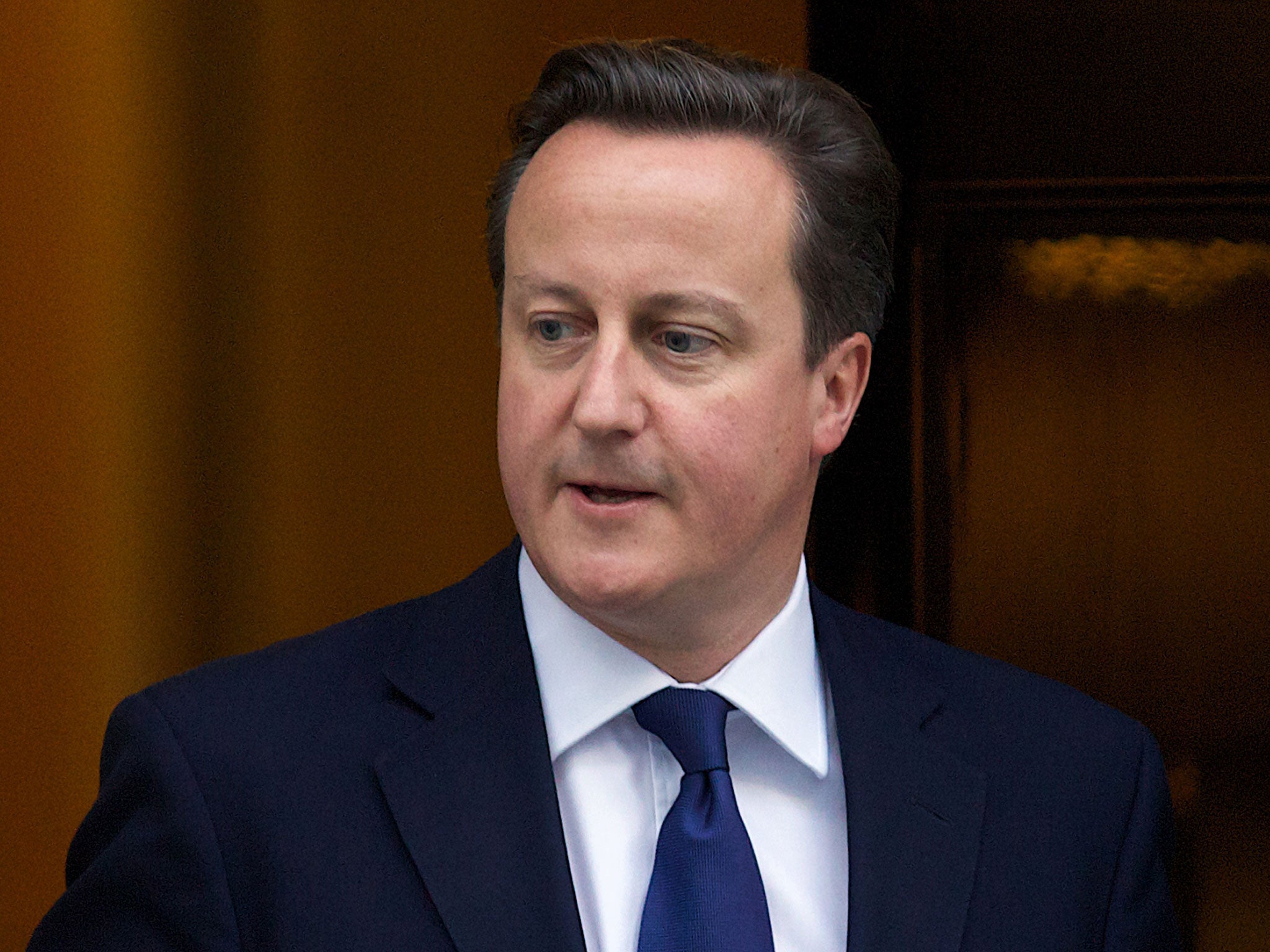David Cameron's gamble in siding with the press over Leveson's recommendations could backfire
The Prime Minister is trying to have the best of both worlds - or the worst of both - by calling a review and then avoid the awkward consequences


David Cameron has chosen to ally himself with the still mighty newspapers rather than the judge he appointed to review their conduct. Ed Miliband and Nick Clegg have backed the judge and risk the wrath of the newspapers. The clash is over a relatively small issue of little interest to the voters. Nonetheless, the divide highlights profoundly diverging views about what constitutes “freedom”, and shows the degree to which leaders dare to challenge newspapers rather than woo them.
I have no doubt Cameron has come out against statutory underpinning of newspapers partly out of principle. He and most of his Cabinet colleagues have a deep wariness of the state in all its manifestations, at least as deep as that felt by Margaret Thatcher in the 1980s. It would have been quite something to witness small-state Conservatives in the Cabinet putting the case for even the most modest statutory underpinning but it was never going to happen.
Flexible
Even so, Cameron must have known when he commissioned the Leveson review that statutory enforcement might be a possible recommendation. Not for the first time, he has sought the best of both worlds, or the least worst of both, by calling a review and then seeking to avoid the awkward consequences. While he acts out of conviction in this case, he is a leader of flexible beliefs when necessary. On past evidence, he would have been flexible if all the newspapers were urging him to implement Leveson in full.
Instead, the self-proclaimed moderniser who side-stepped modernisation of his party has sought to show he understood the anguish of the newspapers’ victims and then acted to ensure he was on the same side as the newspapers.
Ed Miliband is being genuinely bold in supporting Leveson against all newspapers. He does so with a degree of anxiety. He is not daft. He knows that it is neither an easy place to be nor possibly a politically safe one. But he regards, with good cause, a change in Britain’s media culture to be as important as the reforms to financial markets that are still required following the 2008 crash. Cameron leads a party that looks still to the 1980s for ideological guidance. Miliband is convinced we are living through an era of tumultuous change that demands radical rethinking of assumptions. So far, most risks he has taken have been vindicated by events.
This time, he has Nick Clegg as an ally. Clegg’s speech yesterday was far more important for its substance than for the admittedly vivid symbolism of a Deputy Prime Minister advancing from the front bench a different case to that of the Prime Minister. If the issue had been the economy or, indeed, pubic service reform, the sequence would mark the end of the Coalition. The two leaders can survive easily a difference over how newspapers are regulated.
Still Clegg made a vitally important point in highlighting that “freedom” takes many forms. While newspapers must retain the freedom to hold the powerful to account, they cannot be free to wreck the lives of the vulnerable and weak.
Astute
The judge has left it to the politicians to decide. In his final act, Leveson has shown that he is an astute politician, too – he supports self-regulation, while presenting the legislative role as a “guarantee” to newspaper freedoms and to effective self-regulation. This is a clever way of putting it and an accurate one. The idea that such legislation marks a form of state control is absurd paranoia. As Leveson stated several times: “This is not statutory regulation of the press.” He added deliberately: “The victims and public would not accept anything less.”
In that single mischievous sentence, Cameron’s chosen judge makes clear that, in his view, a more modest set of proposals is unacceptable. The view at Westminster is that Cameron made a series of smart moves in his response. For sure, George Osborne looked cheerful, perhaps contemplating a return to working informally with newspapers to destroy Miliband and Labour, hopes interrupted by the fury of some titles that Cameron had the temerity to set up this inquiry.
I doubt if what follows will be so straightforward; a smooth path for the PM in alliance with the press and a thorny one for the other leaders. In times of sweeping change, the more cautious position often proves to be very risky. In terms of political calculation, it is Cameron who starts out with the more cautious position.
Join our commenting forum
Join thought-provoking conversations, follow other Independent readers and see their replies
Comments
Bookmark popover
Removed from bookmarks